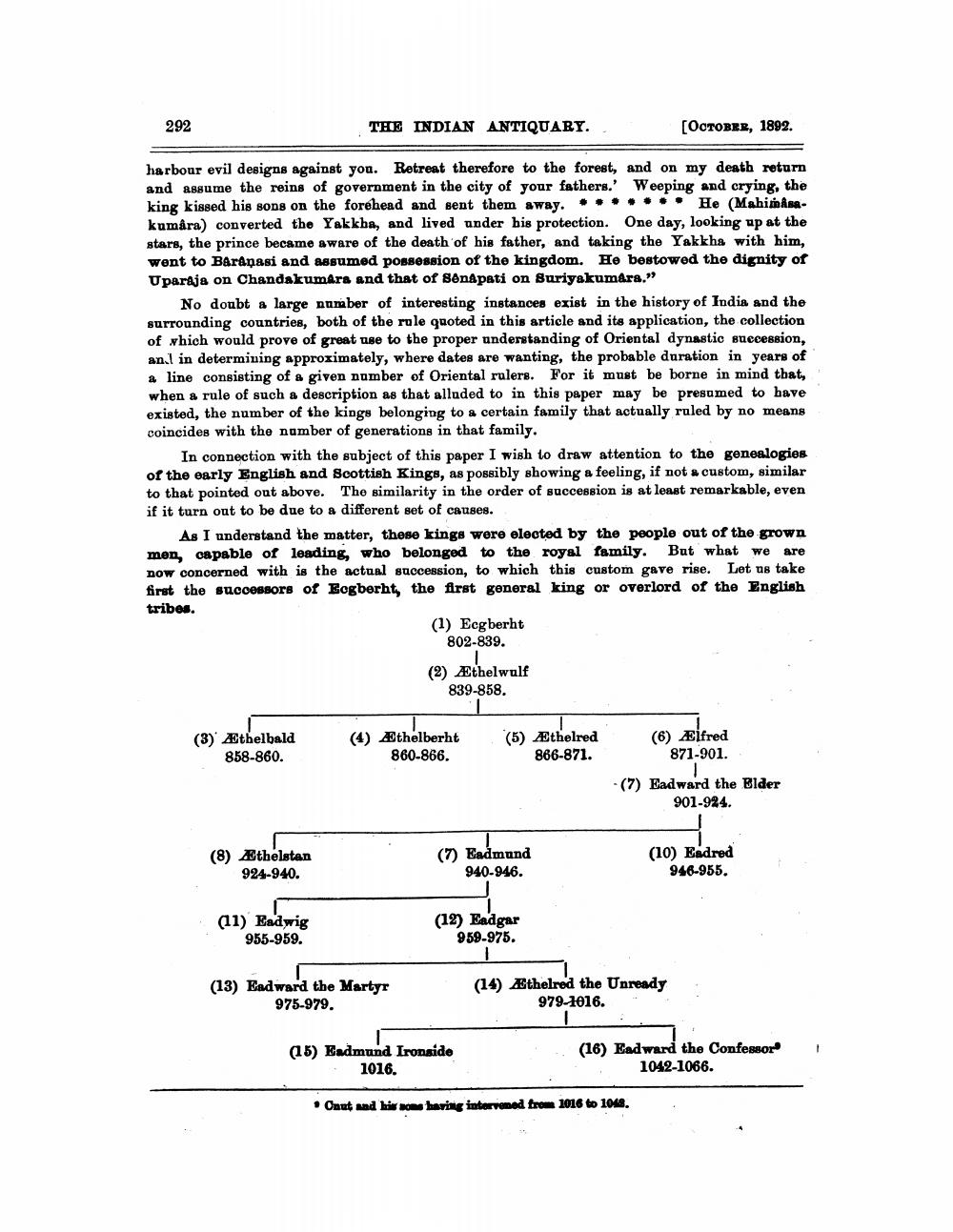________________
THE INDIAN ANTIQUARY.
[Остовкв, 1892.
and on my death return Weeping and crying, the He (Mahimsa
harbour evil designs against you. Retreat therefore to the forest, and assume the reins of government in the city of your fathers.' king kissed his sons on the forehead and sent them away. kumâra) converted the Yakkha, and lived under his protection. One day, looking up at the stars, the prince became aware of the death of his father, and taking the Yakkha with him, went to Baranasi and assumed possession of the kingdom. He bestowed the dignity of Uparaja on Chandakumara and that of Senapati on Suriyakumara."
292
No doubt a large number of interesting instances exist in the history of India and the surrounding countries, both of the rule quoted in this article and its application, the collection of which would prove of great use to the proper understanding of Oriental dynastic succession, anl in determining approximately, where dates are wanting, the probable duration in years of a line consisting of a given number of Oriental rulers. For it must be borne in mind that, when a rule of such a description as that alluded to in this paper may be presumed to have existed, the number of the kings belonging to a certain family that actually ruled by no means coincides with the number of generations in that family.
In connection with the subject of this paper I wish to draw attention to the genealogies of the early English and Scottish Kings, as possibly showing a feeling, if not a custom, similar to that pointed out above. The similarity in the order of succession is at least remarkable, even if it turn out to be due to a different set of causes.
As I understand the matter, these kings were elected by the people out of the grown men, capable of leading, who belonged to the royal family. But what we are now concerned with is the actual succession, to which this custom gave rise. Let us take first the successors of Ecgberht, the first general king or overlord of the English tribes.
(3) Æthelbald 858-860.
(8) Ethelstan 924-940.
(11) Eadwig 955-959.
(1) Ecgberht 802-839. T (2) Ethelwulf 839-858.
(4) Ethelberht 860-866.
(13) Eadward the Martyr
975-979.
(5) Æthelred 866-871.
(7) Eadmund
940-946.
(12) Badgar 959-975. 1
(15) Eadmund Ironside
1016.
(6) Elfred
871-901.
1 (7) Eadward the Elder 901-924.
(10) Eadred 946-955.
(14) Ethelred the Unready
979-1016.
I
(16) Eadward the Confessor 1042-1066.
⚫ Cnut and his some having intervened from 1016 to 1048.




